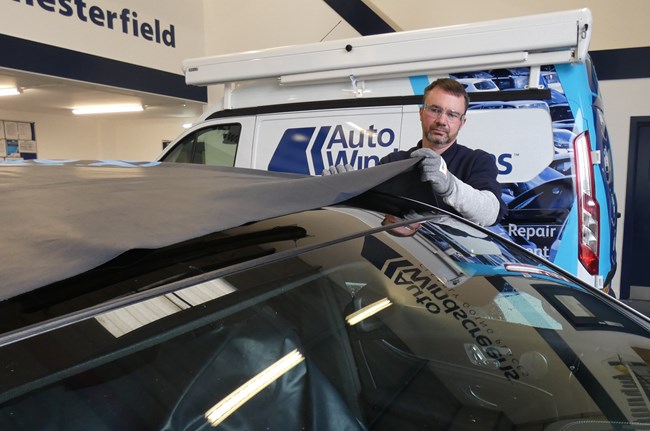
The start point for the best source of fleet information |
ADAS puts windscreen repair in focus
Date: 28 February 2019 | Author: Sean Keywood

The rapid increase in advanced driver assistance systems (ADAS) could pose challenges for fleet managers when it comes to maintenance and defleeting.
The warning comes from Rupert Armitage, managing director of Auto Windscreens, who says that the way such systems are tied into the windscreen means increased complications when repairing damage.
At the firm's Automotive Connecting Conference he explained that not ensuring windscreens on ADAS-equipped cars are properly replaced, and that the system is properly recalibrated afterwards, could have dire consequences for safety.
Auto Windscreens only uses OEM windscreens on vehicles with ADAS, and works exclusively with manufacturers for all recalibrations.
Explaining how he had seen aftermarket repair solutions described as having 'a majority of ADAS systems with 100% functionality', he said: "What is a majority? The majority of the UK that voted for Brexit was 51.9%.
"Do we have vehicles driving around with 51% of their ADAS working? We don't know."
The importance of windscreens to modern car safety was emphasised by Volvo body and paint programme development manager Steve Plunkett, who told the conference: "Volvo windscreens are now an integral part of the car's safety systems."
Armitage told Business Car that fleet managers may find they incur end-of-life costs if vehicles on their fleet are fitted with aftermarket windscreens.
He said: "We are fast approaching the point, I believe, where at defleet people will be looking at the windscreen, because as a first point of reference an OEM-part windscreen in the vehicle is at least saying the ADAS systems have the ability to function correctly.
"Are we going to get to a point where a manager returns vehicles and they are told, 'hold on a minute, you haven't got a genuine windscreen, we are going to charge you for the replacement of that windscreen'?
"And within the scope of what a fleet manager generally does, they will ultimately find it very difficult to have control over every single vehicle, and how that vehicle is repaired.
"I think the biggest challenge will be ensuring that the correct repair method is followed."
Armitage added that an extra incentive for fleets to ensure proper repairs is that the potential cost-savings associated with ADAS will be nullified if the systems aren't working properly.
"Ultimately, ADAS was brought in for safety. If you are saying there is a 30% fall in front-to-rear collisions at low speed, for example, then as a fleet manager that is probably a consideration to you, because you are going to have a lower cost of repair, a lower cost of insurance possibly, less frequency of claims, and all those sorts of things, but that is only on the basis that those systems work.
"So my argument would be: do you do the best you can to make sure they are working, or are you happy to just hope they are working?
"I am sure there are fleet managers who don't really want ADAS on their vehicles, because it is an added headache, but then as this whole thing evolves around autonomy and the more sophisticated it gets you are going to end up in a situation where they want it for all the right reasons; less personal injury, less downtime, fewer vehicles off the road, and for the safety of their employee and their vehicle."
Armitage added that he felt working directly with manufacturers on recalibrations, as Auto Windscreens does, was crucial.
He said: "We want every one of our customers when they drive away to know that all the ADAS features on that vehicle are working.
"We want them to know that the best-quality glass that we could fit was being fitted, and that it has been recalibrated by a trained, manufacturer-approved technician, not by one of our guys, who are fantastically trained and doing a great job, but they are glass technicians.
"To me it is chalk and cheese, it is so completely different."
While addressing the conference, Armitage described ADAS as 'the bane of his life' because of the added complications it causes for windscreen replacement, but added he thought a future solution involving self-calibrating systems was unlikely.
He said: "The day someone comes and says there is a solution and you don't need to calibrate it is a great day, because we are experts at fitting glass, but self-calibration I am not sure can ever happen.
"I hope I am wrong, but there are so many systems on vehicles that I don't see how."










